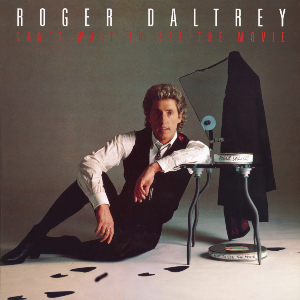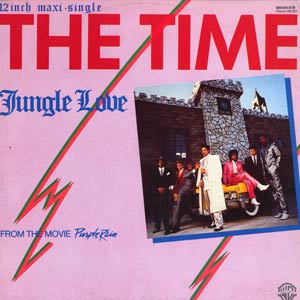Related Research Articles

Funk is a music genre that originated in African-American communities in the mid-1960s when musicians created a rhythmic, danceable new form of music through a mixture of various music genres that were popular among African-Americans in the mid-20th century. It deemphasizes melody and chord progressions and focuses on a strong rhythmic groove of a bassline played by an electric bassist and a drum part played by a percussionist, often at slower tempos than other popular music. Funk typically consists of a complex percussive groove with rhythm instruments playing interlocking grooves that create a "hypnotic" and "danceable" feel. It uses the same richly colored extended chords found in bebop jazz, such as minor chords with added sevenths and elevenths, and dominant seventh chords with altered ninths and thirteenths.

Methods of Mayhem is an American rap rock band formed in 1999 by Tommy Lee, who had temporarily quit his position as Mötley Crüe's drummer.

"The Bird" is a song from The Time's third album, Ice Cream Castle. The song was initially recorded in the studio in 1983 with all instruments by Prince, except guitar, which was performed by Jesse Johnson. This version was replaced by a live recording with the full band at the First Avenue on October 4, 1983. This is the first Time song to be released both live and featuring The Time as a band, rather than primarily Prince with Morris Day on vocals. The song has become a signature number for the band and continues to be played in every Time concert to this day. In addition, two additional live versions have since been released: one on Prince's Rave Un2 the Year 2000 DVD and one recorded at the House of Blues in 1998 for Morris Day's 2004 album It's About Time.

Molotov is a Mexican rock band formed in Mexico City in 1995. Their lyrics, which are rapped and sung by all members of the group, feature a mixture of Spanish and English. The band members also switch instruments and roles depending on what song they are performing.

"Let's Go Crazy" is a 1984 song by Prince and The Revolution, from the album Purple Rain. It is the opening track on both the album and the film Purple Rain. "Let's Go Crazy" was one of Prince's most popular songs, and was a staple for concert performances, often segueing into other hits. When released as a single, the song became Prince's second number-one hit on the Billboard Hot 100, and also topped the two component charts, the Hot R&B/Hip-Hop Songs and Hot Dance Club Play charts, as well as becoming a UK Top 10 hit. The B-side was the lyrically controversial "Erotic City". In the UK, the song was released as a double A-side with "Take Me with U".

"Body Language" is a 1982 song by British rock band Queen. It was written by the band's lead singer Freddie Mercury and was a hit in North America, where it received extensive radio play. However, the single only received a lukewarm response in the United Kingdom. The track was the second single released from their 1982 album Hot Space. The music video for the song was the first one to be banned from MTV for its nudity, despite the members of Queen being fully clothed.

First Base is the debut album by English rock band Babe Ruth. Produced by guitarist Alan Shacklock and Nick Mobbs, and engineered by Tony Clark at the EMI's Abbey Road Studios between June and September 1972, it was released November that year.

Babe Ruth are an English rock band from Hatfield, Hertfordshire, England. They were initially active in the 1970s and reformed in 2002.

"Get It Up" is the debut single by American funk rock band the Time, from their 1981 self-titled debut album. Like most of the album, the song was recorded in Prince's home studio in April 1981, and was produced, arranged, composed and performed by Prince with Morris Day later adding his lead vocals. Revolution keyboardist Doctor Fink provided synth solos on the track, uncredited.

Illumination is the nineteenth studio album by American band Earth, Wind & Fire, released in September 2005 on Sanctuary Records. The album rose to No. 8 on the Billboard Top R&B/Hip-Hop Albums chart and No. 32 on the Billboard 200 chart. Illumination was also Grammy nominated within the category of Best R&B Album. It is the last Earth, Wind & Fire album to feature their founder and co-lead vocalist Maurice White.

"The Magnificent Seven" is a song by the English punk rock band the Clash. Released in 1981, it was the third single from the Clash's fourth album, Sandinista!. It reached number 34 on the UK Singles Chart.

Can't Wait to See the Movie is the seventh solo studio album by English singer, songwriter and actor Roger Daltrey, the lead vocalist for the Who. It was released in June 1987 by Atlantic Records, and was primarily produced by Alan Shacklock, in association with David Foster, Chas Sanford and Jimmy Scott. Among the songs Daltrey is credited as co-writer on two tracks "Balance on Wires" and "Take Me Home". David Foster co-wrote the track "The Price of Love", which was also featured in the 1987 movie The Secret of My Success, starring Michael J. Fox.

"It's a Disco Night " is a 1979 club hit for The Isley Brothers, released on their T-Neck label as the second single from their gold-certified album Winner Takes All. The song is notable for being one of the few disco-based songs the Isley Brothers released. Beforehand, the group were known for their mixture of funk, rhythm and blues and rock. The song was led by brother Ronald Isley while his brothers Kelly and Rudolph Isley chanted "rock don't stop" in the background. The song briefly charted on the Billboard Hot 100 peaking at number 90, hitting number 27 on the R&B chart. Outside the US, "It's a Disco Night" reached number 14 on the UK Singles chart.
And Why Not? were a British pop trio, from Birmingham, West Midlands, England. Their only album, Move Your Skin (1990) was produced by Alan Shacklock, formerly a guitarist in the rock band Babe Ruth, and engineered by Bryan Smith and Harry Sutcliffe, recorded at Mediasmiths Studio, London, Colney.
FreeSol is an alternative soul band from Memphis, Tennessee.

"Jungle Love" is a song from The Time's third album, Ice Cream Castle.

Shinobi Ninja is an American rock and hip hop band from Brooklyn, New York.
Alan Shacklock is an English musician, composer, arranger and recording producer, who lives and works in Nashville, Tennessee. His 1972 song "The Mexican" as performed by Babe Ruth is considered influential in the early development of b-boying and hip-hop culture.
References
- ↑ AllMusic Reference Allmusic entry]
- ↑ "Classic Rock" magazine, May 2012, The Stories Behind The Songs: Babe Ruth - The Mexican.
- ↑ Whitburn, Joel (2004). Hot Dance/Disco: 1974-2003. Record Research. p. 135.